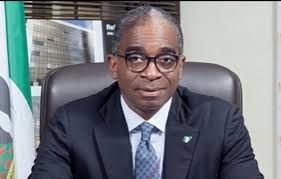Nigeria is mourning the passing of Segun Awolowo, the grandson of the late Chief Obafemi Awolowo, former premier of Western Nigeria. He died at the age of 62, the family announced in a statement on Thursday.
The Awolowo family described him as a devoted husband, father, grandfather, and public servant. “With extremely heavy hearts, we announce the passing of our beloved husband, father, and grandfather — Olusegun Awolowo,” the statement read. “He was the world’s most phenomenal husband, father, and grandfather — steady, wise, endlessly loving, and the constant anchor of our family.”
The statement further highlighted his dedication to Nigeria, praising him as “a painfully loyal servant to Nigeria, who dedicated his life to the service of his country with vision, integrity, passion, and unwavering commitment.” The family also remembered him as a “true family man, a great friend, a wonderful servant of God, and a deeply beautiful human being.”
The cause of his death was not disclosed in the statement.
Segun Awolowo had a distinguished career in public service and trade promotion. He served as the Executive Director and Chief Executive Officer (CEO) of the Nigerian Export Promotion Council (NEPC) from 2013 to 2022, playing a key role in advancing Nigeria’s export initiatives and boosting international trade.
During his tenure at NEPC, Awolowo worked to strengthen Nigeria’s export framework, support local businesses, and enhance the country’s global trade presence. His leadership was credited with opening new markets for Nigerian goods and improving trade relations within and outside Africa.
In July 2021, Awolowo’s expertise was recognised at a regional level when he was unanimously elected President of the National Trade Promotion Organisations (TPOs) from ECOWAS member states. This role gave him the responsibility of coordinating trade promotion initiatives across West Africa, fostering collaboration, and supporting economic growth in the region.
In 2023, the late former President Muhammadu Buhari approved Awolowo’s appointment as Secretary of the National Action Committee on the African Continental Free Trade Area (AfCFTA). This position tasked him with ensuring Nigeria’s active participation in the landmark continental trade agreement, aimed at boosting intra-African trade, enhancing competitiveness, and promoting sustainable economic development across Africa.
Beyond his professional achievements, Segun Awolowo was widely respected for his vision, integrity, and commitment to service. Colleagues and associates have often described him as a pragmatic and passionate leader, one who used his positions to positively impact trade, investment, and economic development in Nigeria and the wider West African region.
His leadership in NEPC and role in ECOWAS trade promotion initiatives highlighted his ability to balance national interests with regional cooperation. Under his guidance, several Nigerian companies were able to expand into international markets, creating jobs and fostering growth.
Awolowo’s contributions to AfCFTA implementation further cemented his reputation as a forward-thinking trade strategist. He was instrumental in aligning Nigeria’s trade policies with continental objectives, ensuring that local businesses could leverage the benefits of the agreement.
The Awolowo family’s statement painted a picture of a man who was deeply committed to his family. He was described as a loving husband, father, and grandfather, whose wisdom and steadiness provided a foundation for his loved ones.
His family remembered him as a “constant anchor” — a source of guidance and support in both personal and professional spheres. Beyond his work in trade and governance, he was seen as a moral and spiritual guide, dedicating himself to service and faith.
Tributes have begun pouring in from across Nigeria, with public figures, colleagues, and admirers acknowledging his contributions to trade, governance, and national development. Many noted that his death represents the loss of a leader who bridged generational divides, carrying forward the legacy of his grandfather while creating his own mark in contemporary Nigerian public life.

